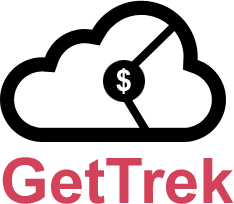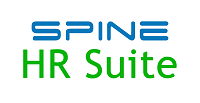Description

GCPAY

TimeForge
Comprehensive Overview: GCPAY vs TimeForge
Certainly! Here’s a comprehensive overview of GCPAY and TimeForge, focusing on their primary functions, target markets, market share, user base, and differentiating factors:
GCPAY
a) Primary Functions and Target Markets
- Primary Functions: GCPAY is a cloud-based construction payment management platform. It primarily facilitates the automation of the billing process in the construction industry. The platform’s functionalities include electronic invoicing, lien waiver management, compliance tracking, and progress billing for general contractors, subcontractors, and specialty contractors.
- Target Markets: GCPAY serves the construction industry, specifically targeting general contractors, subcontractors, and construction managers who need efficient management of complex payment processes and documentations.
b) Market Share and User Base
- Market Share: GCPAY is a specialized solution in a niche market, which makes its market share moderate but significant within the construction technology segment. It’s favored by medium to large construction firms seeking to streamline payment processes.
- User Base: The user base primarily comprises construction firms, both general and specialty contractors. It is utilized by companies that manage multiple projects simultaneously and need a reliable system to handle vast amounts of billing and compliance paperwork.
c) Key Differentiating Factors
- Construction-Specific Features: GCPAY is tailored specifically to construction payment processes, offering features like detailed compliance tracking and lien waiver automation which are particularly important in the construction industry.
- Integration Capabilities: The platform integrates well with major construction management software, such as Procore and Sage 300, enhancing its utility in construction workflows.
- Focus on Compliance: A strong focus on compliance and document management makes it a preferred choice for organizations needing stringent documentation standards.
TimeForge
a) Primary Functions and Target Markets
- Primary Functions: TimeForge is a workforce management platform aimed at streamlining labor management processes. It offers functionalities such as employee scheduling, labor costing, time and attendance tracking, HR management, and payroll integration.
- Target Markets: The primary target markets for TimeForge are retail, restaurant, and hospitality industries that require centralized labor management to optimize staffing, reduce costs, and improve operational efficiency.
b) Market Share and User Base
- Market Share: TimeForge has a solid presence in the workforce management software market, particularly among small to medium-sized businesses in the retail and hospitality sectors.
- User Base: Its user base typically includes managers and HR professionals within the retail and hospitality sectors, encompassing restaurants, convenience stores, and hotels, leveraging the software to manage labor costs and improve employee scheduling efficiency.
c) Key Differentiating Factors
- Comprehensive Labor Management: TimeForge covers the full spectrum of labor management, whereas many competitors focus only on scheduling or time tracking.
- Industry-Specific Solutions: Tailored solutions for the retail and hospitality sectors set it apart from more generic workforce management software.
- User-Friendly Interface and Mobile Access: Its intuitive interface and robust mobile capabilities are designed to improve user experience and facilitate on-the-go management.
Comparative Analysis
- GCPAY vs. TimeForge: While GCPAY specializes in construction payment processes, TimeForge is focused on workforce management in retail and hospitality. Their functionalities, therefore, cater to completely different needs within their respective industries.
- Complementary Integration: Both products emphasize integration—GCPAY with construction management software and TimeForge with payroll systems—which is crucial for enhancing productivity within their targeted operational areas.
- Market Presence: GCPAY is more niche and industry-specific, whereas TimeForge has broader applicability across several industry sectors, though both hold substantial mindshare within their respective arenas.
In summary, while GCPAY and TimeForge operate in different industry sectors, they both focus on streamlining crucial business processes—payment and compliance management for construction businesses, and labor management for retail and hospitality enterprises. Their differentiation largely revolves around their industry-specific adaptation and integration capabilities with other software systems used within those industries.
Contact Info

Year founded :
Not Available
Not Available
Not Available
Not Available
Not Available

Year founded :
2011
+44 18 2329 7007
Not Available
United Kingdom
http://www.linkedin.com/company/timeforgeltd
Feature Similarity Breakdown: GCPAY, TimeForge
As of my last update, GC Pay and TimeForge are software platforms catering to different industries but with some overlapping functions in project management and workforce management, respectively. Here's a breakdown of their similarities and differences based on the core features, user interfaces, and unique functionalities:
a) Core Features in Common
-
Project Management:
- Both platforms involve managing critical project aspects. GC Pay focuses on the construction industry, handling billing processes, subcontractor management, and payment applications. TimeForge, while primarily workforce management software, also offers scheduling and task management which can overlap with project management tasks in certain contexts.
-
User Management:
- Both systems allow for the management of users, whether they are employees, subcontractors, or project members, including permissions and role assignments.
-
Reporting and Analytics:
- Both platforms likely have reporting and analytics capabilities, providing insights into workforce performance and project status. These are crucial for decision-making in both construction finance management and workforce scheduling.
b) User Interface Comparison
-
GC Pay:
- The user interface of GC Pay is more focused on financial and project details pertinent to the construction industry. It tends to feature dashboards for monitoring payment statuses, managing contracts, and ensuring compliance with client requirements. The navigation is typically built around payment flows and document management.
-
TimeForge:
- TimeForge's interface is designed for ease of use in scheduling and shift management, featuring intuitive drag-and-drop functionalities for shift assignments, and calendar views for planning. It may offer mobile app access to facilitate on-the-go management, which is crucial for managers and employees needing real-time updates.
c) Unique Features
-
GC Pay Unique Features:
- Construction-specific tools such as compliance tracking, lien waiver management, and integration with other construction management software like Procore.
- Automated billing workflows tailored specifically for construction projects, which involve complex payment applications and lien waiver exchanges.
-
TimeForge Unique Features:
- Advanced labor management features, such as automated scheduling, attendance tracking (including time clock integrations), and labor compliance features which are critical for the retail and service industries.
- Employee engagement tools that help in communications between staff and management, along with feedback systems.
Conclusion
While GC Pay and TimeForge have some feature similarities in terms of project and user management, they serve distinct primary functions within their respective industries. GC Pay is tailored more towards financial management and compliance within construction projects, whereas TimeForge focuses on optimizing workforce scheduling and labor management for sectors like retail and hospitality. Their user interfaces reflect these differing priorities, with GC Pay emphasizing financial workflows and TimeForge prioritizing scheduling efficiency and accessibility.
Features

Not Available

Not Available
Best Fit Use Cases: GCPAY, TimeForge
GCPAY
a) Best Fit Use Cases for GCPAY:
-
Construction Industry: GCPAY is tailored for the construction industry, specifically focusing on subcontractor billing and payment management. It is ideal for general contractors, project managers, and construction firms that need to streamline their billing processes, ensuring accurate and timely payments.
-
Large-Scale Construction Projects: The platform excels in handling the complexities of large-scale construction projects with multiple subcontractors involved. It ensures compliance with legal documentation such as lien waivers and supports the automation of payment applications, reducing administrative overhead.
-
Infrastructure Projects: GCPAY is well-suited for infrastructure projects such as roads, bridges, and public buildings, where managing numerous contracts and invoices is critical for maintaining project timelines and budgets.
d) Catering to Industry Verticals and Company Sizes:
-
Industry Verticals: Primarily serves the construction industry, including commercial, residential, and infrastructure sectors. It is particularly beneficial for businesses dealing with multiple stakeholders and complex contractual agreements.
-
Company Sizes: Designed for mid-sized to large construction firms that have robust project management needs and handle significant numbers of subcontractors and contracts. However, it can also be useful for smaller firms that manage complex projects.
TimeForge
b) Preferred Scenarios for TimeForge:
-
Retail and Hospitality: TimeForge is designed to meet the scheduling and labor management needs of the retail and hospitality industries. It helps streamline workforce management in environments requiring flexible scheduling and variable staffing levels.
-
Restaurants and Food Services: Ideal for restaurants dealing with peak times and varying customer flow, TimeForge ensures optimal workforce scheduling, labor cost management, and compliance with labor laws.
-
Multi-Location Businesses: TimeForge supports businesses with multiple locations by centralizing scheduling, employee communication, and labor analytics across sites, providing visibility and control over workforce operations.
d) Catering to Industry Verticals and Company Sizes:
-
Industry Verticals: Focuses on retail, hospitality, and restaurants, though it can be adapted to other sectors needing dynamic labor management solutions. It helps streamline operations in businesses with fluctuating staffing requirements.
-
Company Sizes: Works well for small to mid-sized businesses that require efficient scheduling and labor management tools. It offers scalability for larger operations that need centralized control over multiple locations.
Pricing

Pricing Not Available

Pricing Not Available
Metrics History
Metrics History
Comparing undefined across companies
Conclusion & Final Verdict: GCPAY vs TimeForge
To provide a conclusion and final verdict between GCPAY and TimeForge, let's consider the key aspects of each product and determine which offers the best value, their pros and cons, and offer specific recommendations for potential users.
A) Best Overall Value
GCPAY is primarily focused on managing construction payments, including lien waivers, compliance tracking, and ensuring seamless payment processes between contractors and subcontractors. It is particularly valuable for companies operating in the construction industry that require specific functionalities related to payments, compliance, and documentation.
TimeForge excels in workforce management, providing features like employee scheduling, time tracking, and labor management, and is highly effective for companies in retail, hospitality, and the restaurant business.
Overall Value Verdict: The best product largely depends on the industry and specific needs. For companies heavily involved in construction seeking to streamline payment processes and compliance, GCPAY offers better value. Conversely, for businesses focused on improving workforce productivity and operational efficiency, particularly in customer service sectors, TimeForge provides superior value.
B) Pros and Cons
GCPAY Pros:
- Specialized tools for construction payment processes.
- Effective management of compliance documents and lien waivers.
- Facilitates smooth communication between general contractors and subcontractors.
GCPAY Cons:
- Limited functionality outside of payment and compliance management.
- Might not be worth the investment for industries outside of construction.
- Requires users to have some familiarity with construction payment processes.
TimeForge Pros:
- Comprehensive workforce management, including time tracking and scheduling.
- Enhances labor cost control with detailed analytics and reporting.
- User-friendly interface adaptable to various business processes.
TimeForge Cons:
- May have more features than necessary for businesses not heavily reliant on scheduling and labor management.
- Integration with existing ERP systems might require additional setup efforts.
- Primarily targets retail and hospitality sectors, offering limited value to other industries.
C) Recommendations for Users
-
Industry Specific Needs:
- If your company operates in the construction sector, especially if managing subcontractor payments and compliance is a priority, GCPAY is recommended.
- Companies in retail, hospitality, or any business largely dependent on effective scheduling and workforce management should consider TimeForge.
-
Feature Prioritization:
- Evaluate the specific features each product offers versus your operational needs. For instance, if compliance and lien management are crucial, GCPAY should be your choice.
- Conversely, for optimizing staff scheduling and labor cost management, TimeForge is more suitable.
-
Budget and ROI:
- Consider the pricing models and ensure the investment provides a strong return, specifically through efficiency gains and cost savings.
- Ensure that the product you choose integrates well with your existing systems and doesn’t require excessive additional resources.
-
Trial and Support:
- Take advantage of any trial periods, demonstrations, or support options provided by both GCPAY and TimeForge to make an informed decision.
- Evaluate the quality of customer support, as this can significantly impact your experience and satisfaction with the tool.
Ultimately, choosing between GCPAY and TimeForge should be determined by the specific industry needs, desired features, and the overall fit with your business processes.
Add to compare
Add similar companies




